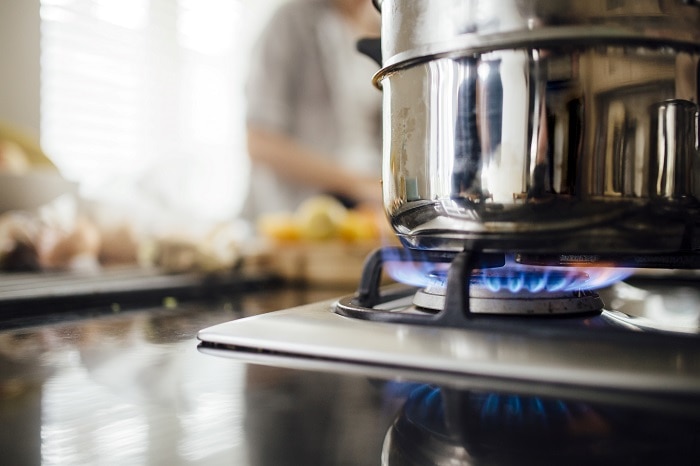Is Your Appliance Trying to Tell You Something?
Don’t ignore the signs that maintenance or repair is needed.
The benefits of cooking with gas are being realized in more and more Georgia homes. Today, two of every five Peach State residences are natural gas consumers, and many of them have gas-fueled appliances in the kitchen.
Nothing beats the convenience and precision of cooking with natural gas. Natural gas cooktops and ranges are durable, too. For instance, a gas range oven lasts an average 15 years before it needs replacement.
Natural gas appliances need regular maintenance to
prolong their lifespan and ensure safe, efficient operation.
There is a catch, though: You have to take good care of these appliances. They need regular maintenance to prolong their lifespan and ensure safe, efficient operation.
How often do you conduct a thorough check of your natural gas kitchen appliances? When was the last time you scheduled professional routine maintenance for them?
Most of us probably have to admit we’ve been a little lax in properly maintaining our gas appliances. Too often we ignore telltale signs and then suffer the consequences of a breakdown or emergency.
Warning signs
Walton Gas shares this list of things to watch for when checking your natural gas cooktop or range.
Color of the flame
Turn on each burner and look at the flames. A healthy gas flame will burn steadily and be blue in color. If that flame isn’t getting enough oxygen it will appear yellow or orange.
This problem may be due to a dirty, clogged burner. If, after cleaning, the burner flame is still orange or yellow and stays this color for longer than a few minutes, a service call should be scheduled.
Burner malfunction
If you find that the burner is not working as well as it should be and possibly has fewer flames than usual, this could be due to buildup within the burner. Before calling for a service technician, try solving this problem on your own with a good cleaning.
The best maintenance against clogged burners
is to clean up spills right away.
The best maintenance against clogged burners is to clean up spills right away. Also, wash the burner parts in warm, soapy water about once a month. READ MORE tips for easy ways to clean your gas appliances.
The smell of gas
It’s extremely rare, but gas leaks do happen, particularly in kitchens with aging appliances and fuel-burning systems that haven’t been well maintained. A gas leak is a serious matter that can be dangerous.
Most Walton Gas customers know the natural gas you receive from us has an additive that makes the gas, which is naturally odorless, smell like rotten eggs. Detecting this odor is the first sign of a possible leak.
When you light your stove, it’s normal for a small amount of gas to escape unburned and you might get a whiff of the pungent, rotten egg smell. If the smell lingers, or you notice it before you turn on a burner, let your nose do some detective work.
- Smell each burner on the stovetop. A strong smell near one of them signifies an issue with the valve that controls that burner.
- Open the oven door. If the smell suddenly becomes stronger, there may be a leak in the valve controls, and gas may be escaping from the burners.
- Pull the stove out from the wall. If the odor of gas is stronger behind the stove, one of the connections between the main gas control and the stove is likely leaking.
If you detect a gas smell coming from your appliance, turn it off immediately. After that, contact a professional to inspect the appliance and repair any damage. If this isn’t done right away, you put your family and home in great danger, so don’t ignore that gas smell.
Prevention
Regular servicing of gas kitchen appliances will ensure they are connected properly and are free of leaks, corrosion, oxidation and other debris that can build up and cause problems. Just like your car, your gas appliances must be properly maintained to ensure they are safe, efficient and working at their full capacity.
Read your owner’s manual to know how often a check-up is suggested.
Read your owner’s manual to know how often a check-up is suggested — and then make a note on your calendar to get it done. Most manufacturers recommend professional servicing every 1 to 2 years, but this varies by brand.
Safety
For safety’s sake, always contact a professional any time you need to have a natural gas appliance serviced, repaired or installed.
Cooking with natural gas appliances is a modern convenience intended to make our lives easier. With proper maintenance and basic safety protocols, your gas appliances can be long lasting, safe and as efficient as possible.
